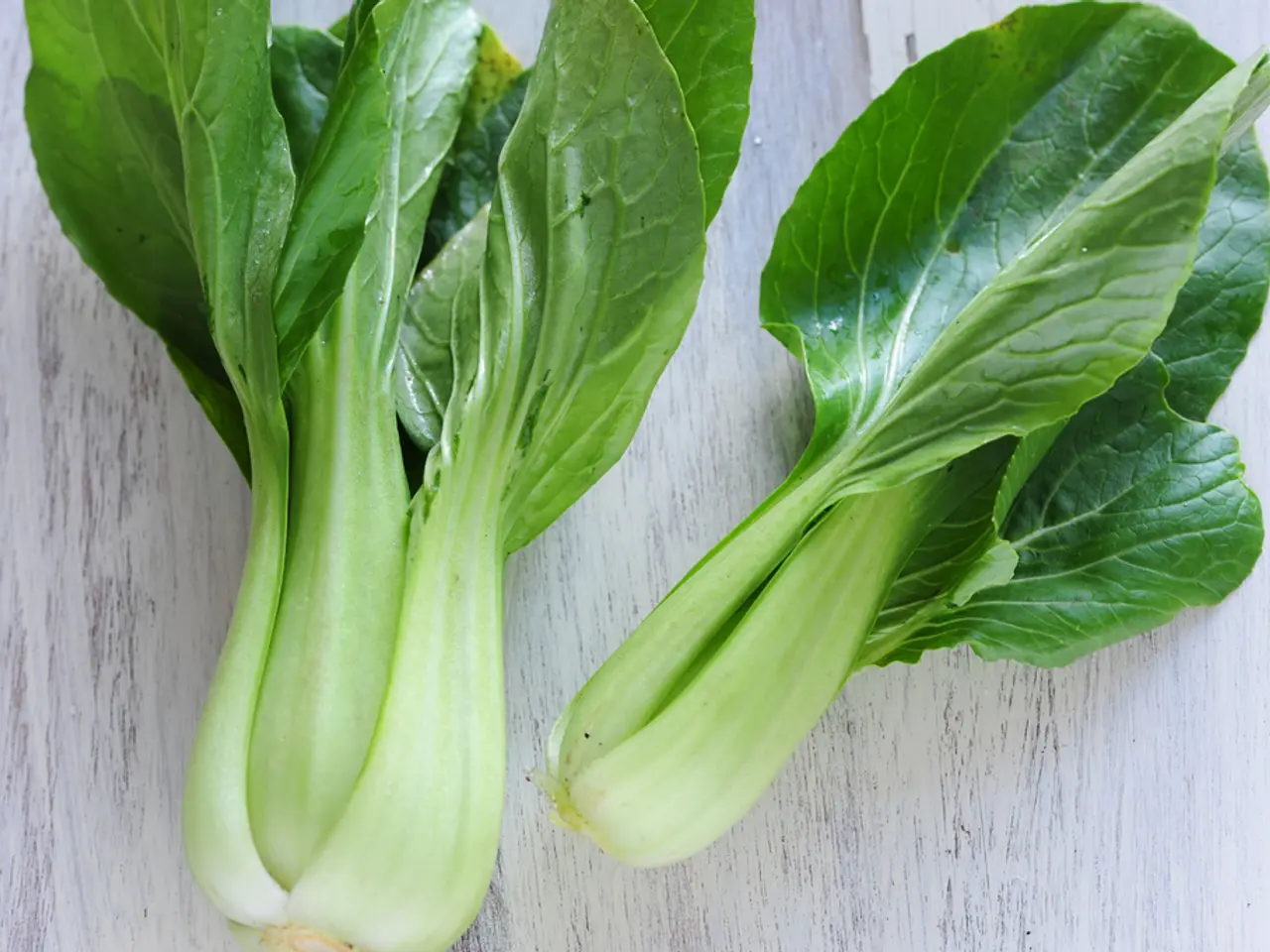Benefits and Nutritional Information of Brussels Sprouts
Brussels sprouts, a member of the cruciferous vegetable family, are a nutrient-rich superfood that offers a broad spectrum of antioxidants, vitamins, and phytochemicals. This humble vegetable, often associated with Christmas and Thanksgiving dinners, is gaining recognition for its numerous health benefits.
Rich in fiber, vitamin C, vitamin A, vitamin K, folate, and various phytochemicals, Brussels sprouts provide essential nutrients that support heart health, may reduce cancer risk, strengthen bones, help manage diabetes, and improve vision and skin health.
Heart Disease
Brussels sprouts contain fiber and antioxidants that support heart health by reducing inflammation and possibly lowering cholesterol and blood sugar spikes. The sulforaphane in Brussels sprouts has been associated with cardiovascular benefits.
Cancer Prevention
The presence of bioactive compounds, including sulforaphane, supports cancer risk reduction by helping to neutralize carcinogens and protect cells from damage. Cruciferous vegetables like Brussels sprouts have phytochemicals that may reduce cancer risk and support immune function.
Bone Health
High in vitamin K, which is essential for bone metabolism and helps prevent osteoporosis, Brussels sprouts provide nutrients that support bone strength and help in healthy aging.
Diabetes Management
The fiber content in Brussels sprouts aids in controlling blood sugar levels by slowing digestion and absorption, thus helping to prevent blood sugar spikes.
Vision and Skin Health
Vitamin A and carotenoids in Brussels sprouts support eye health and may protect vision. Vitamin C promotes collagen production, crucial for skin health, and acts as a powerful antioxidant protecting skin cells from damage due to oxidative stress.
In summary, Brussels sprouts are a nutrient-dense superfood that can contribute to a varied and healthful diet, which is key to good health and disease prevention. To maintain their nutritional value and reduce bitterness, Brussels sprouts should not be overcooked. They can be prepared in various ways, such as roasting, panfrying, or adding to salads.
When it comes to nutritional density, Brussels sprouts rank highly on the Aggregate Nutritional Density Index (ANDI). They are a great source of calcium, essential for growth and healthful bone formation, and provide a significant amount of vitamin K-1, which is beneficial for bone health. Just 88 grams of Brussels sprouts meet the National Institutes of Health's recommended daily requirements for vitamin C and vitamin K.
Moreover, Brussels sprouts may reduce the risk of heart disease and some cancers. Consuming Brussels sprouts may aid in the prevention of cataracts due to their high vitamin C content. Vitamin C found in Brussels sprouts can help combat free radical damage and improve skin health and appearance. Additionally, Brussels sprouts contain a high amount of chlorophyll, which may have antioxidant properties against pancreatic cancer.
In conclusion, incorporating Brussels sprouts into your diet can provide numerous health benefits and contribute to a balanced, nutritious lifestyle. Fresh Brussels sprouts, found on the stalk and smaller in size, tend to be sweeter and more tender, making them an enjoyable addition to any meal. So, why not give Brussels sprouts a try and reap the rewards of this versatile and nutritious superfood?
- Brussels sprouts, a superfood rich in antioxidants, vitamins, and phytochemicals, are gaining recognition for their multiple health benefits.
- Heart disease risk might be reduced by Brussels sprouts due to their fiber and antioxidants, which lower inflammation and possibly cholesterol levels.
- The bioactive compound sulforaphane in Brussels sprouts is associated with cardiovascular benefits.
- Cruciferous vegetables like Brussels sprouts have phytochemicals that may lower cancer risk and support immune function.
- High in vitamin K, Brussels sprouts support bone metabolism and prevent osteoporosis, enhancing bone strength and healthy aging.
- The fiber content in Brussels sprouts helps control blood sugar levels, aiding in diabetes management.
- The vitamin A and carotenoids in Brussels sprouts support eye health and may protect vision.
- Vitamin C in Brussels sprouts promotes collagen production, essential for skin health, and acts as a potent antioxidant.
- Beyond heart health, cancer prevention, and bone health, Brussels sprouts provide essential nutrients that support multiple medical conditions, such as diabetes, vision, and skin health.
- The Aggregate Nutritional Density Index (ANDI) ranks Brussels sprouts highly in nutritional density, making them an excellent source of calcium and vitamin K-1.
- Consuming Brussels sprouts may help prevent cataracts due to their high vitamin C content.
- The vitamin C in Brussels sprouts can combat free radical damage and contribute to improved skin health and appearance.
- Brussels sprouts contain high levels of chlorophyll, an antioxidant that may protect against pancreatic cancer.
- Enhance your health and wellness by incorporating Brussels sprouts into your diet, promoting a balanced and nutritious lifestyle alongside fitness and mental health, while improving mens' and women's health, eye health, nutrition, cooking, lifestyle, and even skin care.





